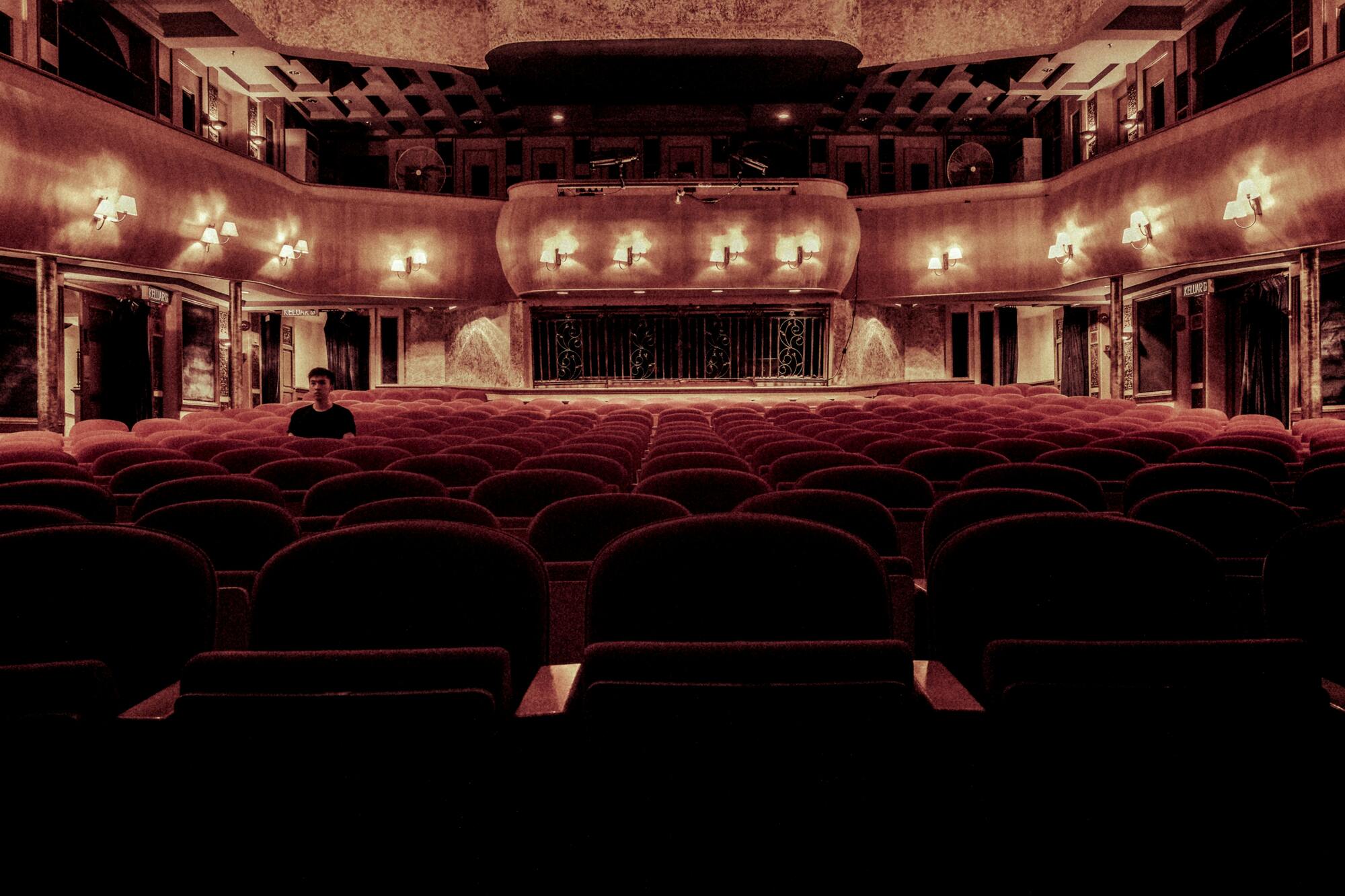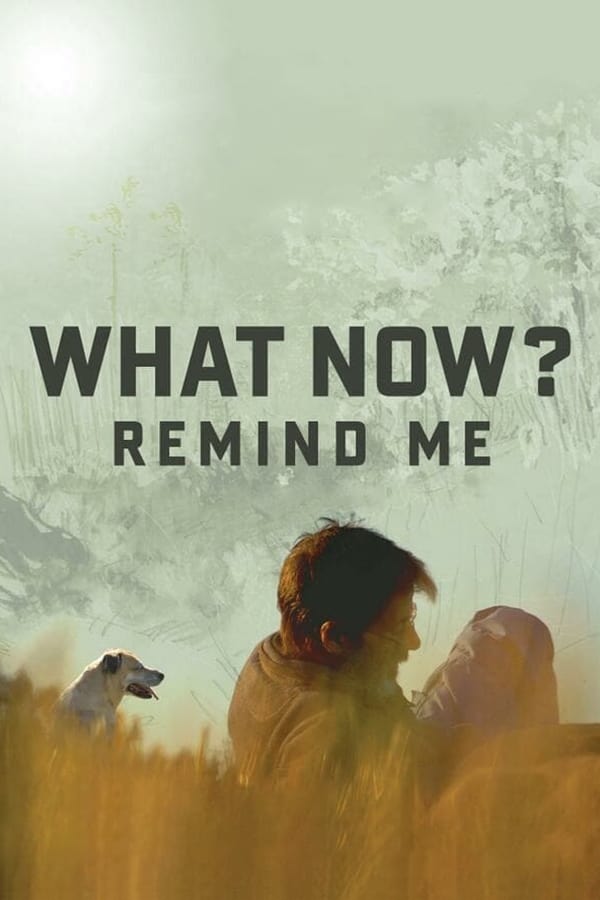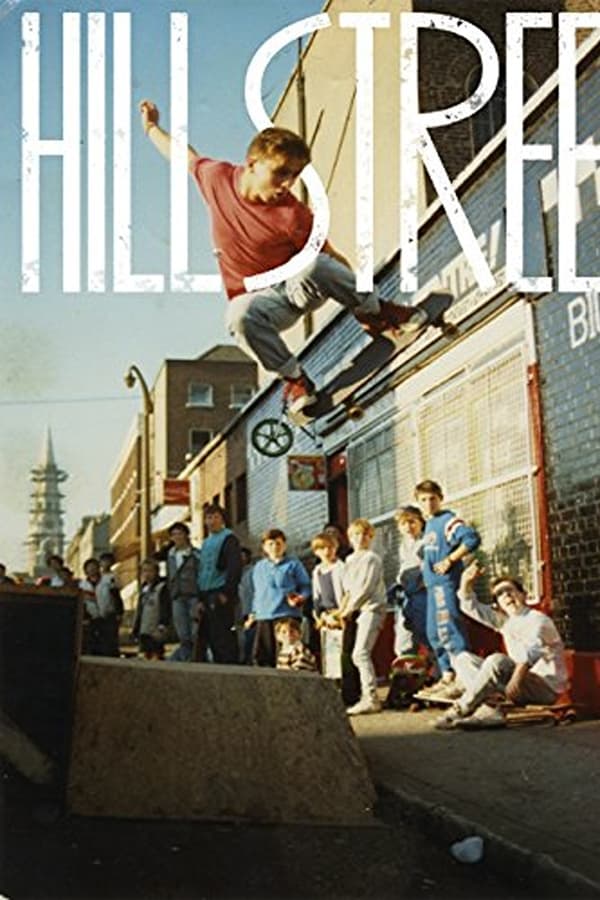
Kus vaadata The Indispensable Practice of Vagueness Eestis
By the director: "Ar.Co embodies each person’s geography, it escapes normalisation. Each individual’s experience is his own. This film is my experience, our experience. Pieced together from the school’s archive, from recordings of classes by Manuel Castro Caldas and from conversations at home."
Vaata "The Indispensable Practice of Vagueness" kohe DocAlliance Films ja GuideDoc ja avasta veelgi rohkem viise, kuidas Popcorn Time'i ülimat voogedastusjuhendit kasutades oma lemmik film sukelduda.
Veel on 1 välist pakkujat. Täielikku nimekirja saate vaadata kust vaadata The Indispensable Practice of Vagueness.
The Indispensable Practice of Vagueness on täna Popcorn Time'i voogedastustabelis #33036 kohal Eestis. film on alates eilsest tõusnud 9 kohta.

Popcorn Time'i järjestussüsteem arvutab populaarsust, kombineerides andmeid mitmest usaldusväärsest allikast, sealhulgas voogedastusplatvormidest, peer-to-peer suundumustest ja globaalsetest andmebaasidest.
Meie algoritm kohandab järjestusi dünaamiliselt, lähtudes sellest, kuidas sisu erinevatel platvormidel, piirkondades ja ajavahemikel esineb. Iga filmi või saadet hinnatakse, kasutades kombinatsiooni tema globaalsest positsioonist, piirkondlikust populaarsusest ja ajaloolisest esitusest. See tagab õiglase, täpse ja pidevalt ajakohastatud ülevaate sellest, mis Eestis trendib.
Avasta veel rohkem voogesitusvõimalusi The Indispensable Practice of Vagueness jaoks!
Avasta, kuidas vaadata The Indispensable Practice of Vagueness mitmel platvormil ja erinevates riikides! Olgu sa kodus või välismaal, legaalsete voogedastusvõimaluste leidmine pole kunagi olnud lihtsam. Alates , on The Indispensable Practice of Vagueness kättesaadav juhtivatel teenustel nagu . Ligipääsetav 4 teises riigis, saad uurida kohandatud voogedastusvõimalusi, mis vastavad kohalikele litsentsinõuetele, tagades muretult ja legaalselt vaatamiskogemuse.
Rohkem infot
- Kestus
- 45 minutit
- Välja antud
- Päritoluriik
- Portugal
- Keeled
- en, pt
- Subtiitrid
- ca, en, fr
Sarnased filmile The Indispensable Practice of Vagueness

Film
Joaquim Pinto has been living with HIV and VHC for almost twenty years. “What now? Remind Me” is the notebook of a year of clinical studies with toxic, mind altering drugs as yet unapproved. An open and eclectic reflection on time and memory, on epidemics and globalization, on survival beyond all expectations, on dissent and absolute love. In a to-and-fro between present and past memories, the film is also a tribute to friends departed and those who remain.
What Now? Remind Me (2014 )

Film
Jorge de Sena was forced to leave his country. First he moved to Brazil, and later to the USA. He never returned to Portugal. During his 20-year-long exile, he kept an epistolary correspondence with Sophia de Mello Breyner Andresen. These letters are a testimony of the profound friendship between the two poets, letters of longing and of desire to “fill years of distance with hours of conversation”. Through excerpts and verses, a dialog is established, revealing their divergent opinions but mostly their strong bond, and their efforts to preserve it until their last breaths.
Correspondences (2016 )

Film
“An old photograph taken 36 years ago. His hand rests on my shoulder. A blessing, a gift. Then a history of over four decades of friendship, admiration and apprenticeship. A journey into Oliveira’s cinema, his method, his way of filming and his extraordinary cinematic inventions. He lived for over a century, over a century of cinema, cinema in its entirety. For him, and for me too now, documentary and fiction films go hand in hand; it is all about cinema. So I had the audacity to film a magnificent story that Manoel loved but never filmed, one that he left behind as if his hand and eyes were close to God, or among the gods, and he was steering me.” - João Botelho
Cinema, Manoel de Oliveira and Me (2016 )

Film
The National Ballet of Portugal is celebrating its 40th anniversary. Since its foundation, it has aimed to present the great classics, as well as to always welcome contemporary creations. Day-to-day life is demanding for dancers, choreographers, musicians, répétiteurs, seamstresses, light technicians, sound technicians, and other elements of a large staff that make it possible for dance to travel through the rehearsal rooms and linger in the hallways before making it onto the stage. This film follows not only the company’s creations and premieres, but mainly each dancer’s silent and structural work.
In the Darkness of the Theater I Take Off My Shoes (2016 )

Film
We wanted to make a film about a teenage mother. We met Joana in a casting that took place in Setubal, in the Bela Vista neighborhood. She appeared to us as a porcelain doll, small, fragile, pale, with a little hair bow. Little by little, she crumbled apart, revealing a charming complexity. We were conquered by the duality of strength and fragility, freedom and incarceration, joy and sorrow. The intimacy and complicity we were able to establish with her made this film possible. In Cat's Cradle, we share her with everyone else.
Cat's Cradle (2012 )

Film
A cameraman and a soundman arrive in Corvo in 2007, the smallest island in the archipelago of the Azores. Right in the middle of the Atlantic Ocean, Corvo is a large rock, 6km high and 4km long, with the crater of a volcano and a single tiny village of 440 people. Gradually, this small filming crew is accepted by the island’s population as its new inhabitants, two people to add to a civilization almost 500 years old, whose history is hardly discernible, such is the lack of records and written memories. Shot at a vertiginous pace throughout a few years, self‐produced between arrivals, departures and coming‐backs, “It’s the Earth not the Moon” develops as the logbook of a ship, and turns out as a patchwork of discoveries and experiences, which follow the contemporary life of a civilization isolated in the middle of the sea. A long atlantic film‐odissey, divided in 14 chapters, that combines anthropological records, literature, lost archives, mythological and autobiographical stories.
It's the Earth Not the Moon (2012 )

Film
How would it look like, the body of Dom Afonso Henriques, first king of Portugal, tutelary figure, subject to successive mythifications throughout Portuguese history?
The King's Body (2012 )

Film
With Reconversão (Reconversion), Thom Andersen opens another fascinating chapter of his ongoing investigation of architectural landscapes, their filmic representation, and their relation to history, by focusing on 17 buildings and projects by the often-controversial Portuguese architect Eduardo Souto de Moura—winner of the 2011 Pritzker Prize. Echoing Dziga Vertov’s concepts and Eadweard Muybridge’s techniques (shooting only one or two frames per second), Andersen masterfully brings forward what makes Souto de Moura an original: the incorporation of the passing of time into architectural designs, positing them within a history fraught with class struggle and societal changes, in a continuum with ruins—from which they may originate, and to which they will return—and with nature—which they frame, and by which they are framed.
Reconversion (2012 )






